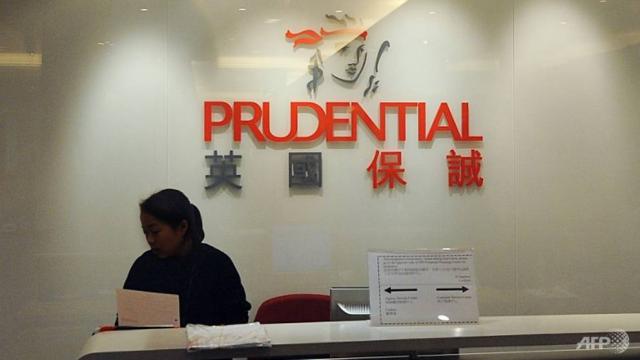Search the Community
Showing results for tags 'banks'.
-
Let's start with this https://www.straitstimes.com/singapore/courts-crime/ocbc-bank-customer-lost-120k-in-fake-text-message-scam-another-had-250k-stolen Young couple lost $120k in fake text message scam targeting OCBC Bank customers SINGAPORE - It took a man and his wife five years to save about $120,000, but in just 30 minutes, scammers using a fake text message stole the money they had kept in their OCBC Bank joint savings account. The couple in their 20s were among at least 469 people who reportedly fell victim to phishing scams involving OCBC in the last two weeks of December last year. The victims lost around $8.5 million in total. The husband works in the e-commerce sector, while his wife is in the hospitality industry. The man said he received the phishing message with a link at around noon on Dec 21 last year. A 38-year-old software engineer who fell prey to the same scam on Dec 28 told ST that he lost about $250,000 he had been saving since 2010. The father of a young child with special needs said the loss has been devastating, and he has been hiding it from his family. The bank said it has since halted its plans to phase out physical hardware tokens by the end of March this year, and has also stopped sending SMSes with links in them in the light of the spate of phishing incidents. Cyber security expert Anthony Lim, who is also a fellow at the Singapore University of Social Sciences, said scammers have advanced software enabling them to spoof telecommunications services and send SMSes that appear in the same threads used by real organisations. He added that even if victims did not provide their one-time passwords (OTPs), they would have sealed their fate when they entered other bank details on the fraudulent sites. "Once the victim unwittingly responds by entering the bank account credentials, the hackers' technologies can divert and capture a copy of the SMS OTP issued by the bank," he said.
-
Singapore Regulator, Banks in Talks to Extend Debt Relief source: https://www.bloomberg.com/news/articles/2020-09-28/singapore-regulator-banks-in-talks-to-extend-debt-relief-scheme Singapore’s central bank is in talks with lenders about extending the nation’s debt moratorium program beyond Dec. 31 to provide extra relief for borrowers hit by the fallout from the coronavirus pandemic, according to people with knowledge of the matter. One of the key measures being discussed by the Monetary Authority of Singapore and local banks is the possibility of lengthening the debt relief program, with industries that have been impacted most by the crisis potentially having aid extended by as many as six months, the people said, asking not to be identified because the talks are confidential. A tiered approach is being considered, so relief is targeted to those needing the most help, one of the people said. Details of the plan and what types of borrowers will be covered under an extension are still being finalized, they said. An extension to the debt moratorium would help mitigate the so-called “cliff effect” on consumers and businesses once relief measures end. Authorities are using both fiscal and monetary tools to provide support against what may be a record recession that came with the pandemic. The government introduced additional support measures of S$8 billion ($5.8 billion) last month, bringing Singapore’s total pledged pandemic aid to more than S$100 billion. They extend to March most wage subsidies that would have expired in August, and are tapered depending on how impacted different sectors are. Deputy Prime Minister Heng Swee Keat has warned, however, that the measures won’t be indefinite as they draw heavily on reserves and risk propping up nonviable businesses. Income Loss Under MAS’s current measures announced in March, small and medium-sized firms can opt to postpone principal payments on their secured term loans until the end of the year. Consumers can defer both principal and interest payments on residential mortgages. Individuals suffering a loss of income can ask for a lower interest rate on unsecured credit. The proposed extension “may not fully mitigate the cliff effect, but it provides more time to banks to restructure their problem loans,” Bloomberg Intelligence analyst Rena Kwok said. Such a move may push the bulk of non-performing loan formation to next year, with credit losses to peak by the end of 2021 and begin returning to normal the following year, she said. Shares of DBS rose 1.2% at 4:35 p.m. in Singapore on Monday, paring this year’s decline to 22%. OCBC was trading 0.8% higher and UOB was up 1.1%.
- 13 replies
-
- 2
-

-

-
- debt relief
- banks
-
(and 1 more)
Tagged with:
-
SINGAPORE: Refunds have been made to the Prudential policyholders affected by erroneous deductions, the insurer's payment bank Standard Chartered Bank Singapore said on Friday (May 25). “We acted immediately and contacted all the respective banks servicing the impacted Prudential policyholders to reverse the transactions," the bank said. "As of 1.15pm this afternoon, we have been informed by all the respective banks that all inaccurately deducted amounts have been refunded to the policyholders.” A Prudential spokesperson later confirmed that all refunds have been completed, adding that customer policies were "not affected in any way". On Thursday, some Prudential policyholders encountered erroneous deductions from their bank accounts, with several telling Channel NewsAsia that they had seen deductions 100 times their premium amounts. The Monetary Authority of Singapore (MAS) confirmed the incident, adding that it was "not a cyber attack but an operational lapse". MAS also said that it had directed Prudential and its payment bank, Standard Chartered Bank Singapore, to return the funds without delay, to keep customers updated and to investigate the root cause of the incident.
- 24 replies
-
- prudential
- refunds
-
(and 6 more)
Tagged with:
-
Can anyone explain what will be the impact of the rating? File photo: Singapore's skyline. Enlarge Caption SINGAPORE: Credit rating agency Moody's on Monday downgraded the outlook of Singapore's three main banks to "negative" from "stable" amid rising property prices and mounting household debt in the city-state. "The two main drivers underpinning our opinion are the recent period of rapid loan growth and rising real estate prices in Singapore and in regional markets where Singapore banks are active," it said in a statement. "These have increased the probability of deterioration in the banks' credit profiles under potential adverse conditions in the future." Moody's said Singapore banks have been operating in a favourable environment for an extended period amid low interest rates and strong regional economic growth, which has led to rising credit and asset inflation in the property and financial markets. Domestically, household debt increased to 77.2 percent of gross domestic product as of March 2013 from 64.4 percent at the end of 2007, with private property prices growing 120 percent during the same period. "Regionally, we observe similar or even more dramatic trends," Moody's added, noting that Singapore banks generate more than 37 percent of their revenues from overseas markets. A tightening of US monetary policy is a "potential trigger" that could have an impact on interest rates in Singapore and neighbouring countries as well as capital flows in emerging economies where Singapore banks are active, Moody's said. Federal Reserve Chairman Ben Bernanke said last week the US central bank would maintain its growth-oriented policies "for the foreseeable future". But some analysts expect its $85 billion-a-month bond purchases to taper off in coming months, possibly in September. Moody's outlook report covers prospects in the next 12-18 months for DBS Bank, Oversea-Chinese Banking Corp and United Overseas Bank.
-
TOKYO—Faced with sluggish domestic growth, Japan’s megabanks are expanding their role in financing global mergers and acquisitions, which hit a record level this year. Japanese banks have long ranked among the world’s top cross-border lenders, and have lent many billions of dollars to Japanese companies also seeking growth abroad through acquisitions. Now the banks are increasingly financing deals that don't involve their compatriot companies. Banks in Japan have had a hand in 59% of global M&A loan packages this year, up from 46% last year and a longtime high, according to data provider Dealogic. That means they have contributed at least a piece of $473 billion worth of global M&A financing such as syndicated loans, the data show. Japanese lenders have helped finance some of the year’s biggest deals. They included Anheuser-Busch InBev’s $104 billion acquisition of SABMiller, announced in October. The country’s top three banks— Mitsubishi UFJ Financial Group Inc., Mizuho Financial Group and Sumitomo Mitsui Financial Group—said they provided about $4 billion each to a $75 billion loan package for that deal. That represents only a fraction of the big three’s total overseas lending. The balance of Mitsubishi UFJ’s overseas lending totaled ¥42.4 trillion ($352 billion) as of Sept. 30, while Mizuho’s was ¥22.6 trillion and SMFG’s was ¥20.5 trillion. The banks don’t disclose the exact amounts of their contributions to M&A loan packages. Still, efforts to ramp up overseas M&A lending are a positive for Japanese banks, said Akira Takai, an analyst at Daiwa Securities,who noted that the money is mostly going to blue-chip companies with higher investment grades. “As dollar funding costs rise, financing for deals is more profitable than normal lending,” he said. With its financial strength, Mitsubishi UFJ, Japan’s largest bank by assets, sees an opportunity to move well beyond financing acquisitions by Japanese companies, said Makoto Kobayashi, head of the banking unit’s financial solutions group. “We’ve seen increasing number of financing deals for non-Japanese M&A activities this year and I feel our presence has been more recognized,” Mr. Kobayashi said. The bank’s alliance with Morgan Stanley has helped it expand its role in global deal financing, Mr. Kobayashi said. The Japanese bank took a 20% stake in Morgan Stanley in 2008, and the two have joint ventures in Japan. “In global deals that Morgan Stanley advises, we get financing even if they [the companies] are not Japan-related,” he said. M&A financing on a global scale presents some challenges for banks more accustomed to working with well-known partners. Takahiko Yasuhara, general manager of the international coordination division at Mizuho Financial Group, said Mizuho works to get to know the biggest companies in regions around the world so it won’t be caught by flat-footed if a deal is struck. “We are often asked by an acquiring company to provide financing for an upcoming deal Friday and to get back to them with a yes or no over the weekend. So to make a quick decision, we have to build close relationships with such companies,” he said. Mizuho contributed to $34 billion in financing toward Teva Pharmaceutical Industries’ $40.5 billion acquisition of Allergan’s generic drugs businesses announced in July. SMFG President Koichi Miyata said he tries to meet a top executive at a major company whenever he goes on a business trip abroad. “Financing deals is about whether you can maintain relationships with a business client…so I’m trying to reach out to contacts during my business trips in Asia, the U.S. and Europe,” Mr. Miyata said. Despite having ample cash on hand, Japanese bankers acknowledge that they could also face a challenge raising U.S. dollars for overseas lending as interest rates rise following the U.S. Federal Reserve’s rate increase this month. Mr. Miyata said SMFG would use dollar deposits and the commercial-paper market, while trying to build dollar holdings by issuing dollar corporate bonds and converting yen.
-
One of my relatives is bedridden and in coma stage now. We have been trying to contact the various insurance companies to enquire if this relative has insurance plans with them. So far, the insurance companies seem OK to reveal details as long as we provide the name and NRIC and explain the situation. However, what about banks? How would we be able to withdraw the cash inside this relative's bank accounts? Does it mean the only time the cash can be withdrawn is upon passing? It is intended to use the cash in the bank accounts to help offset the medical bills. pls advise. thanks
-
My third thread on banks. Having problems with a bank here. Sent letter of complaint online and by post. Not even replies saying being dealt with after over a month. Then looking online and saw this complaint on a board: http://www.complaintsboard.com/complaints/ocbc-bank-immoderate-ocbc-c723022.html BTW this is not my complaint and I do not know the person who made this complaint. Is there any way to be certain a complaint is dealt with because it seems to me all is marketing and no customer service or complaint procedure available. Speak to officers on phone they are completely clueless and have no script to follow as far as a complaint is concerned.
-
hmmmm. i dunno what to say. Any bros in financial industry can confirm? i use vpost all the way since it started. http://www.allsingaporestuff.com/article/whistle-blow-mas-and-banks-cover-recent-credit-card-fraudulent-transactions WHISTLE BLOW: MAS AND BANKS COVER UP THE RECENT CREDIT CARD FRAUDULENT TRANSACTIONS I am sure almost all of you know of the recent fraudulent credit card transactions that appeared in the news last week. Many Singaporeans who shop online received a rude shock when a Taiwan company Neweb Technologies billed unsuspecting consumers NT$1150 which they never spend. I work in a bank dealing with compliance, risk management, operations and this is the low down of how the banks and the Ministry of Finance, MAS, is hiding certain information from consumers who have the right to know what happen. It has been a very demoralizing week at work for me and made worse after reading the statement made by The Association of Banks in Singapore (ABS) published on news yesterday. It said, "Preliminary investigations indicate that there was no breach of any systems within the banks. All affected customers in Singapore will not be liable for these unauthorized transactions. Banks are working with the credit card associations to investigate these incidences." "The ABS clarified that while banks in Singapore have enhanced their security measures and safeguards, cardholders can also play their part when shopping on-line." Some may think it was a kind gesture on the part of the banks to waive liability for all those affected. But the fact is that there was a criminal act involved and consumers need not take on liability in the first place. The real reason why the frauds took place was because ComGateway was hacked and hundreds of thousands of consumers' credit cards and cvc numbers were compromised. Yes, they were stolen because ComGateway, one of the major online concierge/forwarding provider, did not secure the information stored with them. In other words, consumers were open to fraudulent charges not only from Neweb but also any company which the crooks had connection to or sold the information to. So when the banks say that cardholders need to "play their part" when performing online transaction, it is rather unfair. How can cardholders be aware of such possibilities, when it is expected of the banks and MAS to ensure that credit card transactions, at the operational level, are safe?! Is MAS, as a regulator, trying to conceal vital information from consumers? Absolutely appalled with MAS, as they should have be upfront with consumers and informed them that it was ComGateway that was compromised. Consumers have the right to know and take precautionary measures. Working in a bank, I can understand why banks would want to minimize the impact of this issue because it affects the confidence that consumers have in e-commerce, a fast growing business by the way. But why would MAS hide behind the shadows? What vested interests do they have? Modern online transactions have become increasingly complex as organizations try to deal with the problems arising from global online marketplaces, local merchants, online forwarders, and international finance. As usual, the government has allowed big business to grow bigger and earn bigger profits, while doing the bare minimum for security and fiduciary duty. Simply said, the interest of consumers is the last of their concerns as long as the economy is growing. MAS seems to have lost its lead role regulating the many parties involved in online shopping and the multifaceted challenges that it brings. It cannot be the case where only banks are regulated while others can operate at the lowest costs possible without giving a damn about personal security. If MAS continues to twiddle its thumbs and take a "hands off" approach, only consumers will suffer as more of such cases are bound to surface.
-
SINGAPORE: There is an industry wide move by banks in Singapore to disable magnetic stripe on all credit and debit cards. This means those cards can no longer be used for overseas retail purchases outside of Singapore. The move is believed to be led by the Association of Banks in Singapore (ABS). However when contacted, an ABS spokesperson declined comment and said it will make an announcement on July 30. In response to queries from Channel NewsAsia, some banks said they are ready to join the industry in the move. HSBC said it plans to implement the disabling of the magnetic strips within the month of August. HSBC added that it will exempt customers and auto-enrol their credit and debit cards for overseas use if, according to its records, they have a history of overseas use of their cards, or have an overseas address, so that they can enjoy greater convenience without the need to enrol their cards each time they travel. Meanwhile, DBS said the magnetic stripe on all DBS and POSB cards will be disabled for overseas use starting September 22, 2013. DBS added that this is part of its continuous efforts to enhance card security. Customers can allow or disallow overseas magnetic stripe transactions for both overseas ATMs and point-of-sale terminals at any DBS/POSB ATM and branch or internet banking. - CNA/fa http://www.channelnewsasia.com/news/singap...ble/760010.html DAFUQ?!
-
Heads up. Some central banks in Europe have started weighing contingency plans to prepare for the possibility that countries leave the euro zone or the currency union breaks apart entirely http://www.dowjones.com/products/djfxtrade...feAfterEuro.asp
-
Posted By harsha On November 7, 2011 @ 12:02 am In Financial Services http://www.ft.lk/2011/11/07/global-banks-a...10000-job-cuts/ Banks are shedding jobs worldwide as stricter regulations and a tough six months for trading income take their toll on investment banking units. Switzerland
-
as topic TIA!!
-
Hi everyone I just purchased a Pte Property for home stay but now, I'm having headache gng thru all the offers by various banks. Should I take variable or Sibor Packages? Hmm...
-
Let's see what Tharman and co does for Singaporeans. If DBS HK pays the Hongkongers back, will DBS SG do the same? One can argue that they are separate corporate entities under different country governance. HK banks to repay Lehman minibond investors HONG KONG: Hong Kong banks that sold minibonds linked to now-bankrupt Lehman Brothers have agreed to repay tens of thousands of investors up to 96.5 per cent of their investment, regulators said Sunday. The 16 banks will buy back a large chunk of the financial products at the centre of a major scandal in Hong Kong, after they were sold to more than 40,000 investors before their value tanked when the US bank went bankrupt in 2008. Investors ploughed a total of HK$15.7 billion ($2 billion) of their savings into minibonds and other complex products backed by Lehman Brothers. Welcoming the deal the Securities and Futures Commission (SFC) and Hong Kong Monetary Authority said the agreement "will provide substantial recoveries for all customers" holding the products. "This outcome would have been seen as impossible in the months following the collapse of Lehman and demonstrates the value of good regulators responding efficiently and robustly when things go wrong," SFC chief executive Martin Wheatley said in a statement. The HKMA said investors would recover 85 to 96.5 per cent of their initial investment, up from 60 to 70 per cent in an earlier agreement. The deal must first be approved by at least 75 per cent of noteholders at meetings expected to be held in May, receivers PricewaterhouseCoopers said in a statement on its website. The move should draw a line under a saga over compensation for the thousands of investors -- many of them retirees -- who bought the minibonds on the understanding their money was safe. Investors accused the banks of misselling the complex products, sparking a protracted tussle between customers, regulators and the banks over the minibonds buyback. The 16 banks include Bank of China (Hong Kong), Bank of Communications Co. (Hong Kong) and the Bank of East Asia. A spokesman for Hong Kong's government said: "The government is pleased with the high rate of recovery in the value of the Minibond collateral." Former Wall Street behemoth Lehman Brothers collapsed in September 2008 under mountains of debt, leaving investors reeling and sending shockwave across the global financial system. -AFP/wk
-
Hi all, a overseas friend is in town and needs to use the bank. ATMs are no good for him. Anyone knows if there are any DBS/POSB that are open on Friday, Deepavali ? Appreciate any replies . .. . Thanks
-
for many years i was hound by banks to borrow money which i dont need citi- ready credit and etc but one day, I really needed money urgently because some good required urgent cash payment, i seeked the bank's help they denied me even though i was able to pledge my equities luckily, my cash flow improved and i got enough to pay moral of the story: if you got money, the bank will want to lend you money and give you freebies somemore but if you got no money, the bank dont want to lend you money I am confused
-
I am still confused since the day the banks implemented this scheme. if balance is less than $500, there will be a charge of $2. How do banks define avg daily balance? using nov 2009 as example, is it (30 days of flutuating daily balance / 30 days) = avg daily balance? Can give some example?
-
http://www.reuters.com/article/rbssFinanci...UST585520090722 HONG KONG, July 22 (Reuters) - Hong Kong's securities watchdog said on Wednesday that 16 banks had agreed to pay about HK$6.3 billion ($813 million) to compensate eligible investors who lost money on structured products or minibonds offered by collapsed U.S. bank Lehman Brothers. "The agreement that we have reached today will enable the vast majority of investors who hold minibonds to receive a substantial return of their capital," said Securities and Futures Commission Chairman Martin Wheatley. "The total amount that they'll receive will be equal to or greater than what they could otherwise recover at current market values," he told reporters following an SFC meeting with the banks. More than 30,000 Hong Kong residents ploughed nearly $2.5 billion into the derivative products which failed as Lehman Brothers collapsed last September. If the agreement is accepted by investors, "the vast majority of them will be able to get back 70 percent or more of their original investments," Financial Secretary John Tsang said in a statement following the SFC announcement. The agreement will put an end to more than 10 months of distress for investors, and will also enable the banks to resume their normal operation, Tsang added. Many of the investors blamed the Hong Kong Monetary Authority (HKMA) for allowing local banks to sell the products without making investors aware they were risky products. They took to the streets, staging a number of protests in the past year and prompting a government inquiry. The HKMA and the Securities and Futures Commission have since made separate recommendations on how to better protect investors. They include forcing banks to separate their deposit-taking and retail investment businesses. Minibond distributors Sun Hung Kai Financial (0086.HK) and KGI Asia earlier this year agreed to compensate investors in full. Investors in Singapore and Indonesia also lost money on the products. Singapore investors have only been compensated for about a third of their investments. (US$1 = HK$7.75) (Reporting by Nerilyn Tenorio, Donny Kwok and Susan Fenton , Editing by Tomasz Janowski)
-
Wanted to negoitate with OCBC, DBS, OUB, a simple car loan. All say go ask your car dealer..wah kao. You mean consumer no rights to get car loan directly from bank ar? We must pay $$$ to car dealers to be our middle men meh? Can complain MAS anot?
-
Feb 18, 2009 Nationalise US banks Mr Greeenspan said it will be necessary to temporarily nationalise some banks for a swift and orderly restructuring. -- PHOTO: ASSOCIATED PRESS NEW YORK - THE US government may have to temporarily nationalise the country's banks until the sector is reformed, the former chairman of the US Federal Reserve, Alan Greenspan, has said. In an interview with the Financial Times published on the paper's website on Tuesday, Mr Greeenspan said 'it may be necessary to temporarily nationalise some banks in order to facilitate a swift and orderly restructuring'. Long one of the world's most powerful proponents of hands-off financial regulation, Mr Greenspan indicated nationalisation may now be necessary. 'I understand that once in a hundred years this is what you do,' he said. Widely hailed while in office, Mr Greenspan has seen his legacy tarnished since he stepped down in 2006, as critics accuse him of failing to head off the current economic malaise. 'In some cases, the least bad solution is for the government to take temporary control,' he said. Mr Greenspan's call came as President Barack Obama on Tuesday proclaimed he had begun the work of saving the American dream, as he signed into law a historic US$787-billion (S$1.2 trillion) bill designed to rescue the US economy. But US stocks plunged on fears the mammoth bill, a new plan to tackle mortgage foreclosures expected on Wednesday and a fresh effort to save decrepit US automakers would not be enough to end the worst economic slump since the 1930s. Mr Obama, on a visit to Colorado, put his name to what he termed the 'most sweeping' recovery package in US history, which cleared Congress less than a month into his presidency, but with negligible Republican support. 'We have begun the essential work of keeping the American dream alive in our time,' Mr Obama said. The president, who has been warning darkly of economic 'disaster' without quick government action, adopted a more hopeful tone as he signed the bill, which may have deep implications for the success of his presidency. But US stocks plunged as investors worried whether government action would save the ailing economy, with the Dow Jones Industrial Average down 297.41 points (3.79 per cent) to 7,553.00 at the closing bell. -- AFP --- Will Temasek's investments in US banks be totally wiped out when they are nationalised?
- 2 replies
-
- Nationalise
- banks
-
(and 1 more)
Tagged with:
-
LOWLY-EDUCATED retiree investors who put their savings in structured products linked to the collapsed Lehman Brothers have been singled out by the Government for special attention. The Monetary Authority of Singapore (MAS) wants banks and financial institutions to give this group top priority when investigating complaints of mis-selling. Singapore decides not to follow HK's buy-back approach THE Monetary Authority of Singapore (MAS) has decided against following Hong Kong's lead in requiring banks to buy back Lehman Brothers-linked Minibonds at market price from investors. ... more WHAT IS EXPECTED OF BANKS 'Where a customer has been mis-sold the product or where the product was clearly inappropriate to his circumstances, the financial institution should reach a fair settlement in full or in part. This has to be assessed on a case-by-case basis.' ... more It also added that banks should not take an 'overly legalistic' approach in dealing with such cases. And in situations where the product was mis-sold or was clearly inappropriate given the investor's profile and circumstances, MAS wants the financial institutions to take full responsibility. 'We expect them to do the right thing,' declared MAS managing director Heng Swee Keat at a press conference yesterday. Asked what he means by this, Mr Heng later told The Straits Times in an e-mail reply that 'the financial institution should reach a fair settlement in full or in part'. 'This has to be assessed on a case-by-case basis,' he added. Calling them 'vulnerable customers', Mr Heng said at the press conference that this group of retirees would be typically be above 55 years of age and have minimal education. They may also be blue-collar workers or unemployed. Some may not be proficient in English and may be unable to read the structured product's prospectus, where the risks and mechanics of the investment are spelt out. But he also added that not all investors fitting this profile would necessarily be inexperienced. 'We are focusing on cases of mis-selling to vulnerable customers and on cases where the products were clearly inappropriate for them given the circumstances,' said Mr Heng. According to MAS, about 10,000 retail investors had pumped over $500 million into structured products linked to the US investment bank Lehman Brothers. Lehman's bankruptcy last month has meant that investors holding products such as Lehman Minibonds, DBS High Notes 5 and Merrill Lynch Jubilee Series 3 Linkearner Notes could lose most of their money. On Wednesday, The Straits Times highlighted the plight of retiree investors who have stopped work and therefore have little hope of recouping their nest-eggs in their lifetime. Yesterday, MAS reiterated that it will come down hard on anyone who has been found to have mis-sold these products to them. Many retirees say they did not fully understand the products and claim to have been wrongly assured that they would not lose their principal sums. 'MAS confirms that we have been conducting formal inquiries into allegation of breaches of the law, inadequate internal controls by the financial institutions, or poor sales practices by their representatives,' said Mr Heng. 'We will make an announcement on any actions we are taking when our inquiries are completed.' MAS also said that a 'number of possible cases' have already been found by independent parties overseeing the complaints process at each of the financial institutions that had sold the Lehman-linked products. It added that it is following up on these cases, but gave no further details. In the meantime, it is urging those affected who have a genuine claim that they were mis-sold their investments, to lodge their complaints with the financial institution they dealt with. MAS said that it has asked the chief executive officers of these institutions to personally chair internal review panels to look into these complaints. In each case, MAS wants the panel to decide what to do within four weeks and communicate its decision to the customer. If investors are still not satisfied with the decision, they can take their case to the Financial Industry Disputes Resolution Centre (Fidrec). Mr Heng emphasised that the Fidrec mediation process is free of charge and if the case goes to arbitration, the cost to the customer is just $50. Fidrec normally deals with claims not exceeding $50,000. But in the case of structured products, the centre has agreed to hear all 'deserving cases'. Responding to the MAS' statements yesterday, DBS Bank said it is 'now reviewing all concerns raised on High Notes 5 in a prompt and comprehensive manner, and will not hesitate to take responsibility in instances where evidence of mis-selling is established'. The Straits Times understands that the bank has already given special attention to retirees. Hong Leong Finance, which distributed Lehman Minibonds, said it 'will focus special attention on those above 55 years old, less educated and first time investors in structured products'. Maybank said that it has to date, contacted 50 per cent of customers with complaints to schedule interviews. It told The Straits Times that it is also dealing with 'vulnerable customers' first. Investors and investor advocates applauded the MAS move, with Mr Leong Sze Hian, president of the Society of Financial Service Professionals, saying that it is 'obvious that this group needs more help'. But Aljunied GRC MP Cynthia Phua also added that while it is a 'good step forward', MAS still needs to address deficiencies at the bank level in selling these products.
-
just received a letter from DBS telling me that their 'promotional' feature for recurring payment of my car loan instalment has ended and was asked to pay by giro, internet banking or cheque from next month onwards, wtf , didnt even know it is for a limited period only and now my loan is still more than half way to go. Anyone know which other banks offer payment of the car loan thru credit card?
-
http://money.cnn.com/2008/09/29/news/econo...sion=2008092914 US market already lau sai liao... tomorrow is a hard day for speculators
-
Business Times - 23 Sep 2008 HK investors may sue sellers of Lehman-backed bonds HONG KONG - Hong Kong investors who bought complex financial products backed by collapsed US investment bank Lehman Brothers were considering suing the institutions who sold them, a lawmaker said on Tuesday. Investors argued that the banks who sold the instruments guaranteed by the failed Wall Street titan did not fully explain the high risks associated with the products. 'The investors are considering mounting legal action against the banks for misrepresentation,' Albert Ho, chairman of the Democratic Party and a lawyer, told AFP. Many of the investors, who paid a total of HK$12.7 billion (US$1.63 billion), had been sold mini-bonds which are based on derivatives linked to major firms' stocks but are worthless if the guarantor goes bankrupt. 'These products used to be sold only by investment banks to clients who had at least US$1 million,' said Mr Ho. 'But a few years ago, commercial banks wanted to snatch a piece of the pie and started to convince their elderly customers to buy the mini-bonds without explaining to them the risks involved,' he said. He said investors will meet the city's Consumer Council on Thursday to see if they can get legal and financial assistance to try and recoup their losses. Mr Ho said many of the bond holders were retired and had put all their savings into the investment because they trusted their banks. A meeting held on Monday night with investors was attended by 800 people, Mr Ho said. Some of them held a protest on Sunday to urge the government to provide assistance. The Hong Kong Monetary Authority said it would investigate if 21 sellers of the mini-bonds had mis-sold them, according to a report in the South China Morning Post. The Consumer Council said it had received a handful of enquiries from the investors and would consider their application for its legal assistance fund if it thinks they have a case, a spokeswoman for the council said. Lehman Brothers collapsed last week under the strain of the US subprime, or high-risk, mortgage crisis, sparking turmoil on financial markets across the world. -- AFP
- 9 replies
-
- Will
- Singaporeans
-
(and 1 more)
Tagged with:
-
Got this from Yahoo! http://news.yahoo.com/s/nm/20080726/ts_nm/...CYPq1RF0A0DW7oF By John Poirier Sat Jul 26, 12:08 AM ET WASHINGTON (Reuters) - U.S. regulators took over two banks on Friday and sold them to Mutual of Omaha Bank, the sixth and seventh bank failures this year as financial institutions struggle with a housing bust and credit crunch. Two weeks after the Federal Deposit Insurance Corp seized IndyMac Bancorp Inc, the Office of the Comptroller of the Currency said it closed First National Bank of Nevada and First Heritage Bank NA of California ........................ Will there be another major bank in the pipe line ??
- 2 replies
-
- regulators
- seize
-
(and 2 more)
Tagged with:













